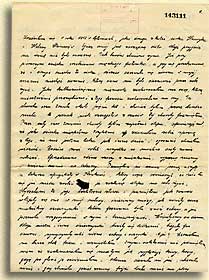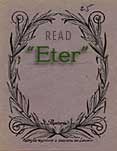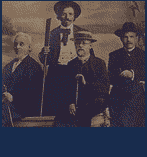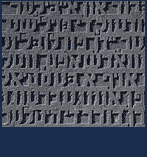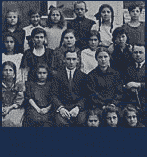

The best of my private students was with a classmate of mine, who later became my best friend. She was a Catholic, the daughter of a well-to-do engineer. She was staying in Zloczów with her grandmother, who was the wife of a court councilor.
For tutoring her I received thirty-five and later forty zloty a month; her grandmother also invited me for a snack every afternoon
We became very close friends, this girl and I, and this friendship--despite the difference of religion, ideology, and now the distance between us--has lasted to this very day.
The letters my friend has sent me lately are quite interesting. She refers to me in them as her sister and asks me not to take to heart certain Catholics' attitudes toward the Jews, because--in her view--these Catholics constitute a small minority, while the rest recognize the equality of all.
I told her about my latest wishes and dreams, which involved going to Palestine. I joined the Betar youth movement. Many of my friends also joined, but we did so secretly, so that no one at school would know, as it was strictly forbidden.
I remember fondly those evenings, when, after exhausting tutorials, I would drop by the Betar headquarters, at least for a short while. It was always noisy and cheerful there, and when I left I always felt refreshed. Whenever time allowed, I also tried to be involved and help out.
Unfortunately, I always had very little time. In addition to my studies and tutorials, I also signed up for classes in French and Hebrew, but later I had to drop them due to lack of time.
I myself don't exactly know how it happened that, despite my upbringing, such a strong feeling of Jewishness awoke in me, but the strongest influence was the anti-Semitism that flourished in schools then.
My sister and brother also became ardent Zionists at the time, and this had an influence on our parents. To the extent that they could, they began to contribute to Jewish causes, shop in Jewish stores, and socialize in Jewish circles. Today, a portrait of Herzl and a map of Palestine hang over Father's desk.
I search for work and confront anti-Semitism
My dreams were now more or less as follows: to find an office job, work there until I saved enough money to go to Palestine, buy some decent clothing, and leave for Palestine. There I would work on a farm, then buy a little house with a small garden, a cow--in a word, I'd have a small place of my own, where I could bustle about, a homeowner and homemaker.
Alas, these, too, remained merely dreams. I kept reading ads in all the newspapers and sending in applications, I pursued connections through my friends, but all in vain.

The greatest obstacle to getting a job was my religion. I came to realize this when there were two job openings, one at an insurance company, the other in the town hall.
I approached the president of the trade school association, who liked me very much. He was also the mayor of Zloczów. He knew me from school; I was always sent as the commercial school's representative to wish him all the best on his name-day, and he had always promised to help me.
Now he said to me, "I could help you if you weren't Jewish." This was very painful for me. Was it my fault that I was born Jewish? Did anyone ask my opinion about whom I wanted as parents, or who I wanted to be? Despite being Jewish, hadn't I always participated in every patriotic event? I was the best student in school, and my Polish compositions were read aloud in class as models of good writing. And how much devotion and love for the country in which I was born and raised was contained in them!
I begin to work towards my dream
As soon as I joined the movement, a Betar commander began to follow me around constantly.
At first, I paid no attention to him--just as I had ignored my schoolmates in this respect--simply because I never had time even to engage in casual conversation with anyone. I noticed him only when my girlfriends started teasing me, and when our names were mentioned together more and more often.
I liked him. Although he was short and not particularly handsome, there was something about him that I found attractive. He was exceptionally intelligent, and he was so engaging that it was impossible to be bored in his company.
At first he only walked me home from our meetings, but later, after I graduated from school, we went everywhere together. He also tried to help me find a job, although without success. He loved me; I knew it, and I also got used to him and fell very much in love with him.
When summer vacation was over and I had nothing to do, he suggested that we both go on hakhsharah  , and then we would certainly manage to get certificates to emigrate to Palestine. This was more likely because he was a commander and had greater influence; in fact, he had already earned a certificate. Once again, I had a dream: we would complete hakhsharah and leave together for Palestine.
, and then we would certainly manage to get certificates to emigrate to Palestine. This was more likely because he was a commander and had greater influence; in fact, he had already earned a certificate. Once again, I had a dream: we would complete hakhsharah and leave together for Palestine.
We went to work on a farm in Kalinka. A new life began for me, doing physical labor that I hadn't tried before. Although at first my body ached, I was in rather good spirits. I raked hay, dug up potatoes, milked cows, and so on.[...]
I was sent to complete my hakhsharah in Zbaraz. There I chopped wood at first, then I did laundry, and in the end I kept house and cooked for the unit. The organized activities were very enjoyable. In the evenings, after work, we studied Hebrew and attended lectures on the geography of Palestine, Jewish history, and so on.
Of course, some unpleasant conflicts were unavoidable. There was a girl in the unit who--I don't know why--disliked me. She conspired with a few other girls, and they began to make fun of me. Their reason was that I couldn't speak Yiddish. Was it my fault that I never heard a word of Yiddish spoken at home? And where was I to learn it--at school?
The other girls didn't know it, but I have a contrary nature; when someone annoys me or yells at me without justification, I will sooner pretend that I don't care rather that explain or make excuses for myself. I would have explained, but only if they had asked me politely, without accusations and shouting.
This squabbling led to arguments in the unit, and as a result I acquired the nickname of "shikse". Later, after that nasty girl left, we all got along.




